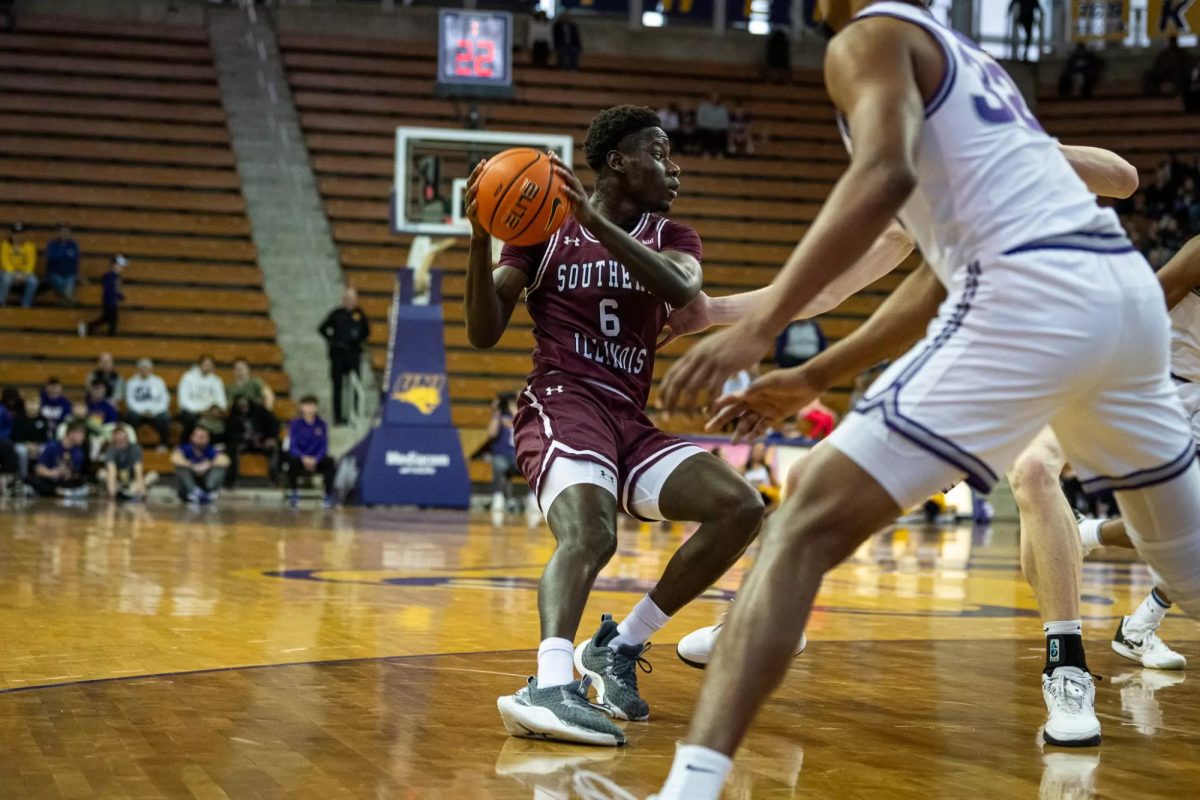What a horse wants
October 23, 2005
SIUC professor conducts study to find out…
That’s exactly what Sheryl King, director of SIUC’s Equine Science program, is trying to prove in a study examining the preferences of horses.
“A horse needs to be a horse,” King said. “What’s comfortable for you, may not be comfortable to the horse.”
Advertisement
Keeping a horse in a stall all day, feeding it twice a day and babying it is not good for a horse.
“You’re killing them with kindness,” King said.
She wanted to convince people who don’t want to be convinced that pampering a horse harms it. She decided to conduct a study. The study, funded by the Equine Promotion Board, is in its second year of examining horses both in their natural settings and in stalls to find in what setting horses thrive. It’s a five-year project and will examine 35 horses over that period.
“There’s a whole number of bad habits horses develop if confined too much,” King said.
What King defines as “confined” is not just 24 hours a day in a stall. It’s 12 hours a day in the stall or even a couple hours. It’s any period of time a horse cannot move and eat. King compared it to taking everything, from books to the telephone, out of a person’s room and then locking that person in the room for hours.
When horses are bored, they often develop bad habits. These include pacing, pawing in the stall, aggressive behavior and, sometimes, “cribbing” – gnawing on wood, sometimes even steel. Horses may also start “weaving,” a term used for a horse swaying its head from side to side. These are all signs of intense boredom.
Another problem King found is keeping horses stalled all day and feeding them once in the morning and once in the evening. A horse in its natural environment, she said, will eat 19 hours each day.
Advertisement*
“The natural behavior pattern for horses is to eat nearly constantly and move constantly,” she said.
Locked in their stalls, some horses do neither.
Some owners think they are protecting their horses, especially when winter and cold winds hit. King, however, said horses are uncomfortable in 70-degree weather. After growing a winter coat, horses will thrive in 40-degree and even lower conditions.
King said some owners are also scared their horses will run into a fence at night and hurt themselves. Many owners don’t realize horses have excellent night vision, far better than human night vision, King said.
“It’s kind of like raising kids,” she said. “You can’t keep them in a bubble. Accidents happen. Is the answer to stall them all the time?”
Diana Thissen, a student from the Netherlands who has been riding horses since she was nine years old, helps in King’s research. She said she agrees with much of what King is trying to prove.
“If a horse is outside, they can get rid of their energy, versus building up the energy when they’re inside,” Thissen said.
For people who live in the city and don’t have acres of free pasture, King’s recommendation is to get the horse out of the situation and avoid it again at all costs. A stable with even small pens attached to a stall is better than a stable that keeps horses inside all day. If people have no other choice than to leave horses in the stall, they should at least keep the horses occupied, both with food and with stall toys, King said.
An animal science class at SIUC will participate in the study. On Friday, groups of seven students will go to the stables for six hours shifts to observe the horses. Five horses will be at the barn and two horses will be in the pastures. Students will each be given a checklist. A student looks at a designated horse once every five minutes and writes down what the horse is doing. If the horse is eating, the student will check a box for that. If the horse is just standing, the student will check that.
The purpose of the checklist is to help students notice what the horses are doing in each setting and how the settings cause the horses to do different things. Their data will later be analyzed as part of King’s study.
“You learn a horse’s behaviors by watching them for hours and hours and hours,” King said.
Advertisement







